Birmingham pub bombings: Police 'have duty' to interview IRA suspect
- Published
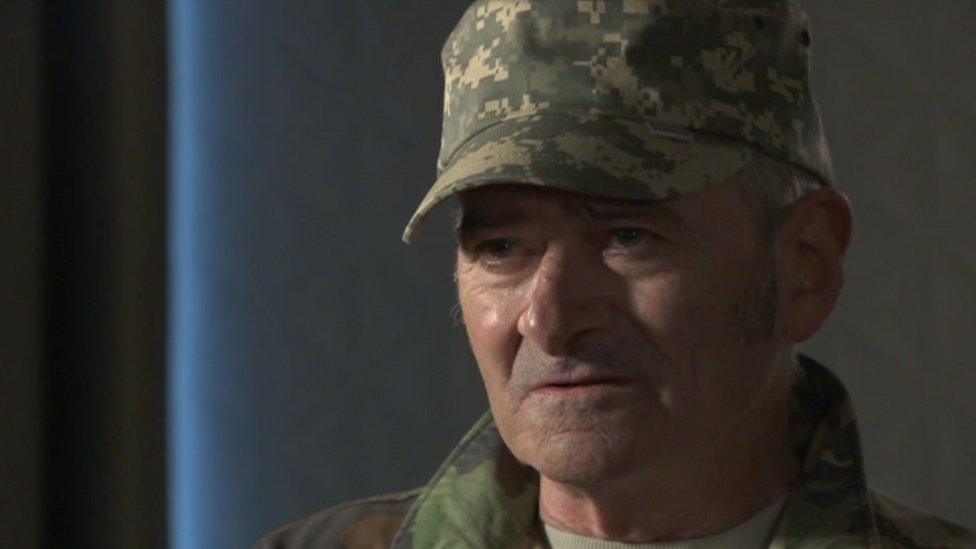
Michael Hayes told the BBC that he was part of the group responsible for the pub bombings.
A detective who was at the scene of the Birmingham pub bombings has called for police to interview a man who claims he was part of the group behind the attack.
Explosions at two city centre pubs killed 21 people in November 1974.
John Plimmer said it is now "the duty of the British police to interview" Michael Christopher Hayes.
Mr Hayes, 69, told the BBC he took collective responsibility for the attack and issued an apology.
Six innocent men were wrongfully convicted. No-one has ever been brought to justice for one of the worst single losses of life in the Troubles.
Speaking to Good Morning Ulster, Mr Plimmer said: "Whatever confession he makes or any other person makes, my view is it will need strong corroboration to be believed or to stand up in a court of law.
"I think whether he is speaking truthfully or otherwise, it will be the duty of the British police to interview him.
"How could you not interview him?" he added.
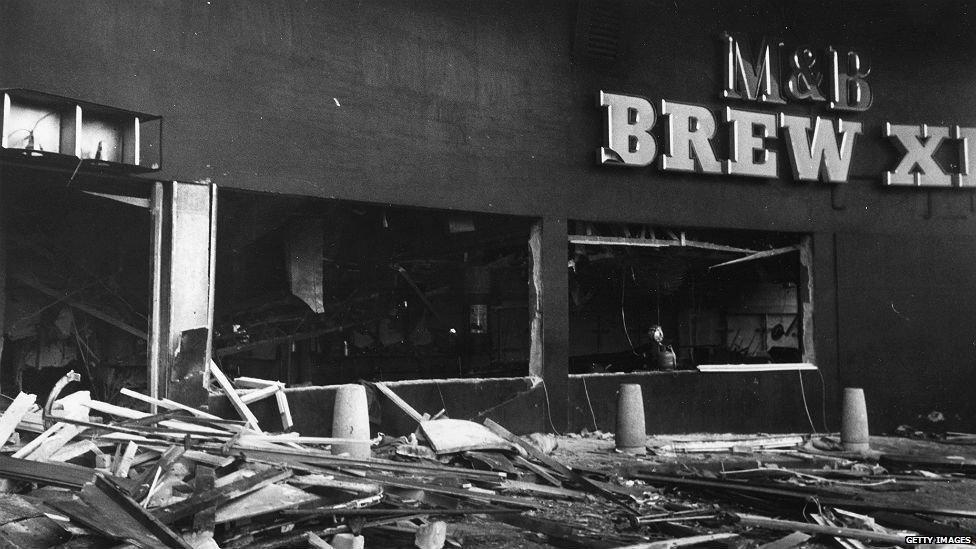
The bombs were widely acknowledged to be the work of the IRA
"The element of truth in what he's saying, if there is any, has to be proven beyond all doubt and I think this is where the difficulty will come in.
"You've got this 40-year bridge that has to be crossed and I should imagine that it will be extremely difficult to find anything that will corroborate anything by this man," added Mr Plimmer.
East Londonderry DUP MP Gregory Campbell tabled a question about Mr Hayes in the House of Commons on Tuesday in light of his interview.
He said it is vital for the public to know if Mr Hayes was in receipt of a so-called "on the run" letter.
"The claims he has made must be tested and that can only be done under questioning from the police," he said.
"It is important the public is told the answers to these questions as, otherwise, all we will be left with are claims made to the TV cameras which have only caused deeper pain and grief to the victims and their families."
Michael Hayes, who now lives in south Dublin, told the BBC that he was part of the group responsible for the pub bombings.
He refused to reveal who planted the bombs in the Mulberry Bush and the Tavern in the Town but said he was speaking out to give "the point of view of a participant".
'Incumbent on police'
He said the bombs had not been intended to kill people, and that he was sorry innocent people were killed.
Once he became aware of the death toll from the two bombs, he personally defused a third bomb left on Birmingham's Hagley Road, said Mr Hayes.
Relatives of those killed have rejected the apology as "gutless and spineless".
George Jones, whose father was killed in the bombings, told Good Morning Ulster it was "incumbent" on the police to act.
Paul Rowlands, whose father was also killed, added that Mr Hayes' apology was "meaningless".
"We need answers, we need names and we need answers.
"It's another example of someone saying I know who did it but we're not going to tell you."
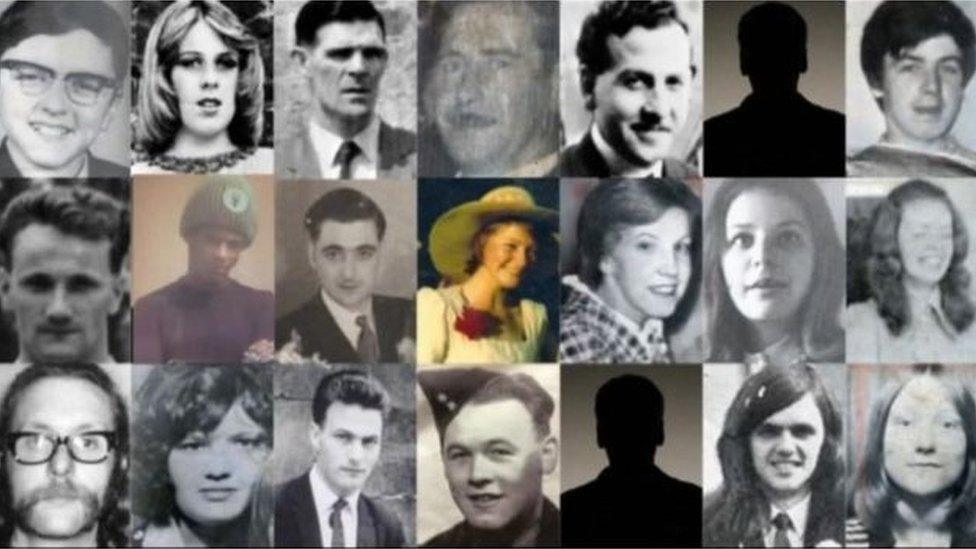
Twenty-one people died in two explosions in Birmingham in November 1974
An inquest into the bombings has been re-opened following a campaign by victims' families, who feel they have been denied justice and that their loved ones have been forgotten.
West Midlands Police said their investigation remained open and they would respond to "any new significant information to bring those responsible to justice".
"An inquest is due to start and we will not be providing any further comment until the proceedings have concluded," said a police spokesperson.
- Published11 July 2017
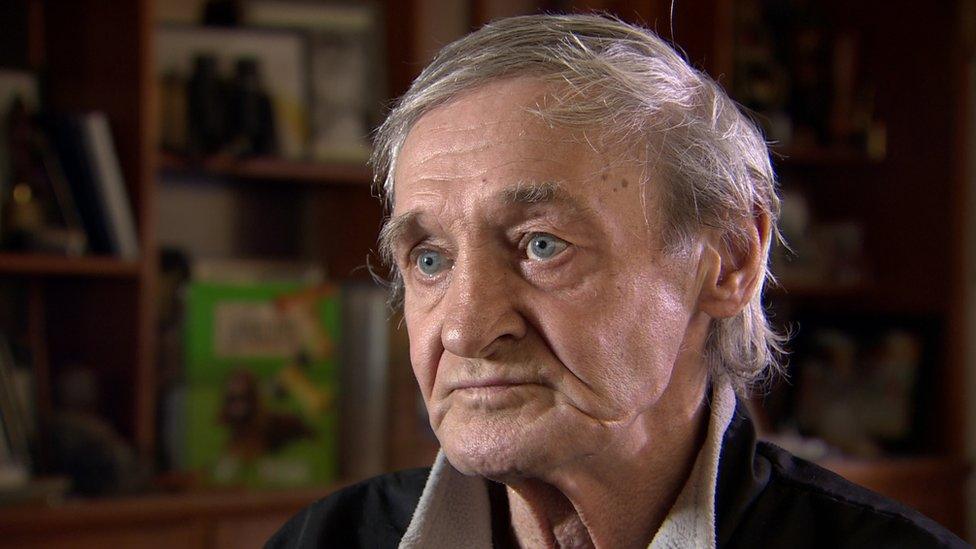
- Published10 July 2017
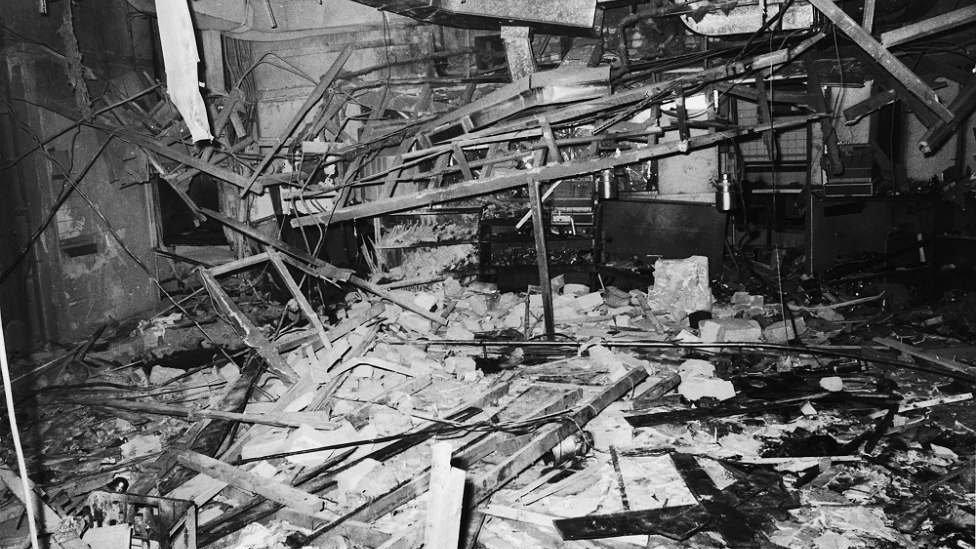
- Published10 July 2017

- Published10 July 2017
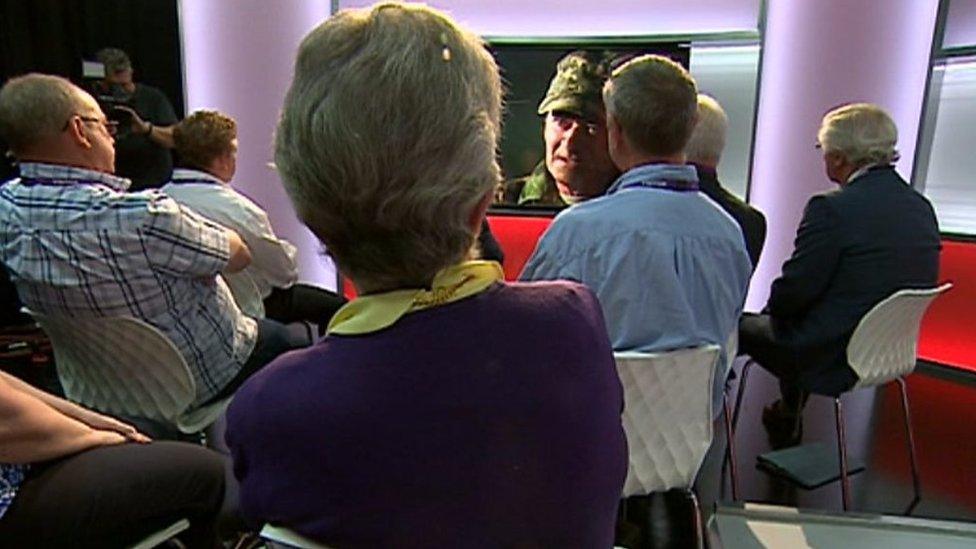
- Published7 July 2017

- Published30 June 2017
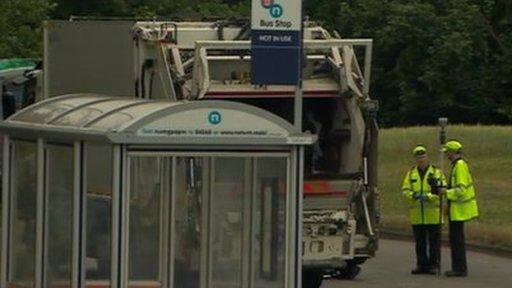
- Published5 July 2017

- Published4 May 2017
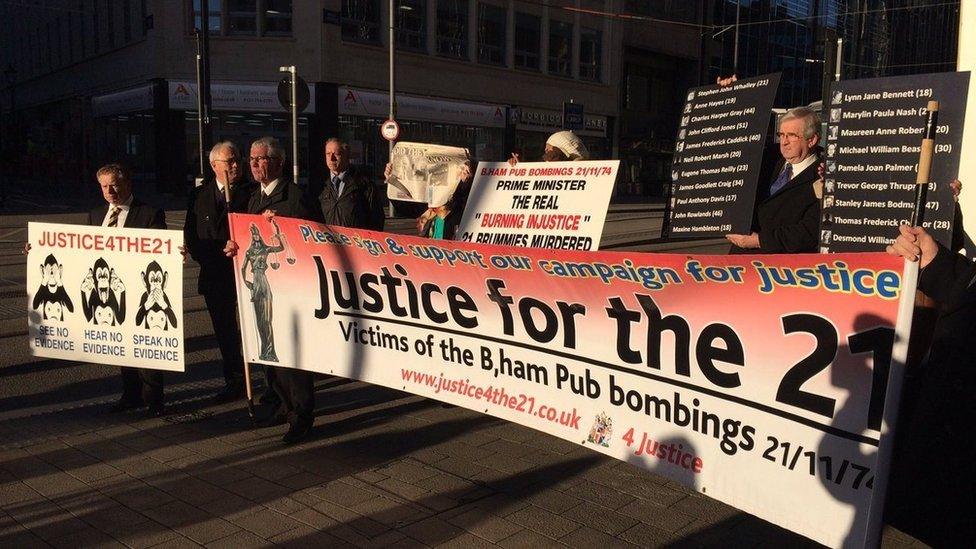
- Published14 March 2011